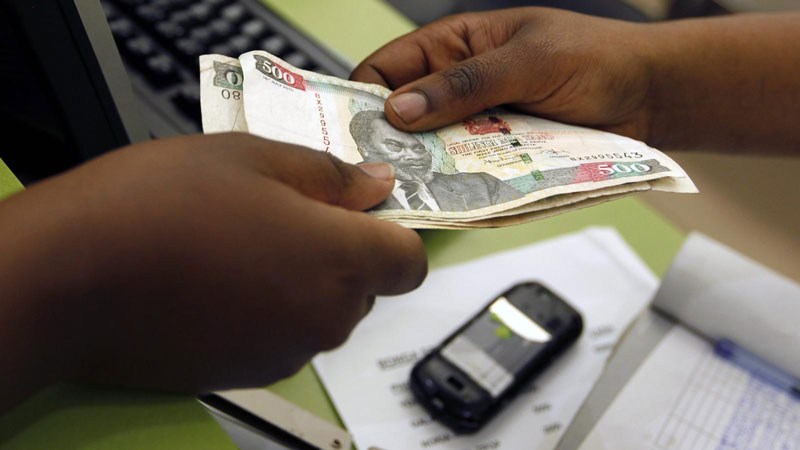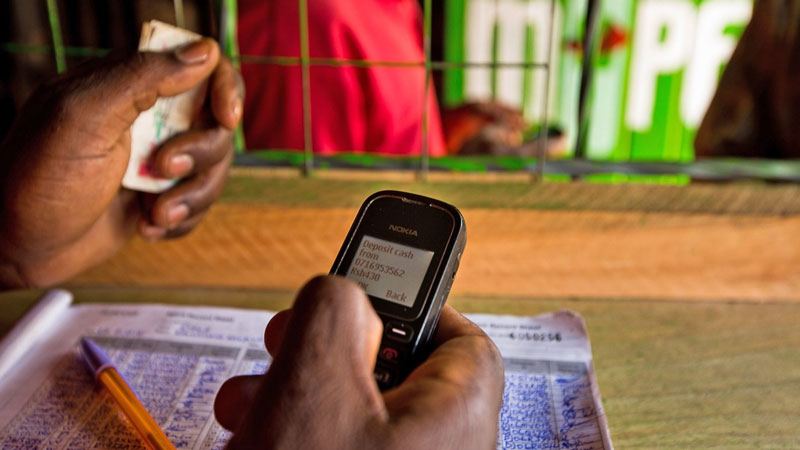What Is M-Pesa, and What Is It Used For?
Feb 19, 2024 By Triston Martin
M-Pesa is a mobile banking app that lets you save and send money from your smartphone or tablet. M-Pesa is a mobile money transfer service launched in Kenya to give residents an alternate method of receiving financial benefits. Safaricom, Kenya's largest mobile phone provider, was first introduced M-Pesa in 2007.
Fintech developments like M-Pesa are motivated in part by the goal of financial inclusion, which primarily targets those who are either underbanked or unbanked. In the age of digital banking, financial inclusion aims to reach out to those who don't have access to banks or can't afford the needed minimum deposits. Diverse sectors must collaborate to share data and develop a relevant digital platform for this endeavor to succeed.
Understanding the M-Pesa
It's a virtual banking system that uses a phone's SIM card to process transactions. Once the SIM card is placed into the mobile device's slot, customers may use SMS messages to make payments and transfer money to merchants and family members.
M-Pesa shops are widely available in the country, even if you don't have a bank account. You hand your cash to the kiosk attendant, who electronically transfers the funds to your M-Pesa account. M-Pesa cash is put into Safaricom bank accounts. The Deposit Protection Fund insures the bank accounts up to a limit of 100,000 shillings (or $1,000) as standard checking accounts.
As an Example of M-Pesa

A farmer who does not have a bank account and wishes to deposit $1,000 in the M-Pesa account of a kiosk agent or attendant goes to an M-Pesa outlet. To make things even more convenient for the customer, the agent uses her phone to log into her account using the client's registered phone number and deposit $1,000 into the account.
Within seconds after making a deposit, the farmer receives an SMS message on his mobile phone notifying him of the amount placed and his current account balance. A personal PIN and the M-Pesa attendant or agent number supplied at the outlet allow the farmer to withdraw cash from his account.
Facts You Probably Didn't Know About M-PESA.

M-PESA is one of the most successful microfinance or development efforts to date, with more than 70% of Kenyan families and more than 50% of the country's impoverished, unbanked, and rural populations using the service within three and a half years after its introduction. It always amazes me how few individuals are motivated by or even believe in M-PESA. Lack of information can lead to skepticism, which can then lead to doubt.
Safaricom utilized M-PESA money.
Several commercial banks in Kenya, all of which are closely regulated, hold the money. Furthermore, because the assets are housed in a Trust, Safaricom cannot access or use them. Safaricom's creditors would be unable to access M-PESA cash if the company were to declare bankruptcy. The Central Bank of Kenya, which is in charge of M-PESA, mandates this. M-PESA customers retain ownership of their funds at all times.
M-PESA produced nonbank money.
Commercial banks' pooled accounts fully guarantee any money sent through M-PESA. According to monetary aggregates, M-PESA clients' mobile money storage and movement are counted as M1.
M-PESA Was Unmonitored
Because every transaction on the M-PESA platform is electronic, Safaricom can keep track of it using its bank-grade anti-money laundering system. Whether a trade is a cash-in or cash-out, it is tracked electronically. M-PESA transactions are regularly reported to the Central Bank of Kenya, much like other payment service providers.
M-success PESA's posed a systemic risk.
Only 0.2 percent of all bank deposits are held in M-PESA accounts, which is a fraction of the total. M-PESA does not pose a risk to the economy as a whole. About 70 percent of electronic transactions in Kenya were made using M-PESA in June 2010, yet just 2.3 percent of those transactions were worth more than a thousand Kenyan dollars.
The success of M-PESA shows that modest electronic transactions and value storage are in high demand. A cap of 70,000 Ksh per day can be taken out of the account and held in the system. There is a 35,000Ksh limit on cash in, cash out, and P2P transactions.
Do M-PESA cash merchants hold M-PESA or client funds?
To sell it to consumers who come to their retail shop for cash-in operations, the M-PESA cash merchants pre-buy mobile money. They are making investments with their own money and not acting as a middleman. Mobile money is used instead of cash for pay-out procedures. Cash merchants always handle and hold their own money in M-PESA or cash. Merchants that sell their working capital balances on the M-PESA network are generally "super users," who are only granted more significant transaction limits than regular M-PESA users.

What Does It Mean If You Have An 800 Credit Score?
Congratulations, your credit score is excellent at 800 or higher. Your Score is significantly higher than the national average, showing lenders that you are a responsible borrower. A credit score of 800 or higher gives you something to brag about and makes you eligible for preferential treatment when applying for new credit..
Feb 07, 2024 Triston Martin

Investing in 3x ETFs Can Be Riskier Than You Think
The chances are excellent that if you've been following the stock market for any time, you've heard of a leveraged exchange-traded fund. A ticker symbol identifies an exchange-traded fund, a collection of equities. Throughout the day, they are purchased and sold at prices that may be higher or lower than their net asset worth.
Nov 23, 2023 Triston Martin

All About Refinancing a Mortgage Cost
Refinancing could help you save money each month by lowering your payment if you have a fixed-rate mortgage with an interest rate higher than current market rates. You should consider refinancing if doing so will reduce your interest rate by half a point or more.
Nov 13, 2023 Susan Kelly

See also: What Cars Are Worth to Insurance Companies?
More than 40 million vehicles are sold each year. Some of the most crucial elements that affect the value of your car when you're trying to sell it are the mileage, interior and exterior conditions, location, model, make, and year. Insurance companies may use actual cash value (ACV) to determine how much to pay a policyholder for an accident or vehicle damage. The ACV is the repair cost less the vehicle's depreciation.
Jan 15, 2024 Susan Kelly

Key Aspects of Personal Liability in Renters Insurance: Complete Guide
If you want to protect your belongings while renting, claim for Renters insurance. Risks can be reduced by learning coverage limits and effective ways of filing insurance claims.
Feb 20, 2024 Susan Kelly

When to Take Social Security
At 62, you are eligible to begin receiving Social Security payments, but your benefits will be cut indefinitely after that point. The more significant the monthly gift, the longer you can wait after age 62 (up to 70).
Jan 20, 2024 Susan Kelly